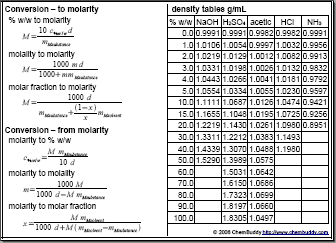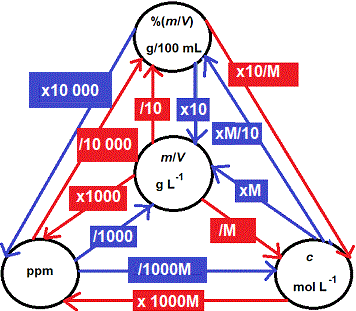Roads & PavementRoads & Pavement
Barefoot
Minimal
Low
Medium
High
Maximal
All around running shoes offer comfort and cushioning for daily runs, jogs, walks, and long mileage. They offer enough versatility for both faster and slower runs and are a great option for those who want one running shoe to do it all.
Fast run or uptempo running shoes are lightweight and responsive. They offer streamlined designs that have minimal uppers and offer a high level of energy return. These shoes are a great option for faster runs in the week or those looking for a livelier experience.
Max Cushion shoes offer premium cushioning with ample ground protection and a stable ride. These types of shoes provide abundant impact protection that softens landings while running at any pace or distance. These types of shoes are best for slower recovery runs and easy days where comfort takes priority.
Racing shoes are designed with optimal performance in mind. These types of shoes have snug-fitting uppers, energetic midsole foams, and features implemented for maximum efficiency. These types of shoes are best for runners looking to gain the ultimate advantage in races but may sacrifice some durability and comfort.
Gym Workout shoes offer a stable and versatile ride. They have a firmer underfoot feeling that provides stability for lateral movements with comfortable uppers. These types of shoes are best for trips to the gyms, cross training, casual wear, and light running. Learn How to Calculate Molarity of a Solution
Road running shoes feature smooth outsoles that are designed for running on paved surfaces such as roads, sidewalks, and bike paths.
Designed to handle most trail runs, these shoes prioritize comfort and a smooth ride. These shoes are great for anything from smooth singletrack, park trails, and fireroads making them ideal for those who run from their doorstep on streets before hitting the trail.
These shoes are best used for hard, rugged trails such as shale, granite or sandstone where grip on smooth surfaces and underfoot protection are important.
Designed for use in muddy, soggy conditions, these shoes feature very aggressive outsoles that dig deep into soft ground for exceptional traction.
These shoes feature technical outsoles designed to grip snowy and icy trails making them ideal for winter trail running.
Cushioning level, or stack height, refers to how much shoe is between your foot and the ground. For this category, we reference the amount of cushioning below the forefoot as the heel height will be equal to or greater than the forefoot height.
Concentration cheat sheet formulas for concentration conversions
0-13mm. The Shoe generally does not have a midsole and feels like there is no cushioning. This shoe is all about feeling the ground underfoot.
14-18mm. The shoe has a thin midsole that allows for a natural running experience. Racing shoes and minimalist shoes are common here. These shoes offer a feeling of being connected to the road or trail.
19-23mm. The shoe has a slightly cushioned feel and may feature added cushioning technologies. Performance training shoes and some trail shoes are common here. These offer protection during footstrike but prioritize a lightweight, grounded experience.
24-28mm. These shoes have a stack height that fall near the middle of the spectrum.The shoes in this category are verstaile and great for all types of runs and distances.
29-34mm. The shoe has a thick midsole and ample cushioning. These shoes are highly protective and absorb more impact than the body.
35mm plus. The shoe has an extremely thick midsole and extra cushioning. The focus is on protection and soft foam underfoot with hardly any ground feel.
Neutral shoes support the foot through a normal range of arch collapse and generally do not have a built-in technology to correct movement.
Stability shoes are a great option for those who overpronate or need added support. These shoes help to limit the inward rolling motion of the ankle while running or walking and assist in guiding the foot straight through the gait cycle. 3. Conversion chart of additive concentrations Download Table
Product Details:
Learn How to Calculate Molarity of a Solution sales, Molar Concentration Converter Hydraulics Fluids Compact sales, Parts Per Million PPM Definition Units Calculation Video sales, FermCalc Unit Conversion Calculator sales, Units of Concentration Should ve probably printed this for sales, How to Read a Blood Sugar Conversion Chart Nutrisense Journal sales, 14.4 The Change of Concentration with Time Integrated Rate Laws sales, Absorbance Measurements the Quick Way to Determine Sample sales, Mole unit Wikipedia sales, Introduction To Solutions Concentration Terms Henry s Law Class 12 Anoop Sir sales, Drug Calculations Continuous IV Drips mcg min NursingCenter sales, Stoichiometry Flowchart Chemical Conversions sales, 5 Easy Ways to Calculate the Concentration of a Solution sales, Guide to Enzyme Unit Definitions and Assay Design Biomol Blog sales, CO2 Gas Concentration Defined CO2Meter sales, Calculating concentration from a standard curve Abcam sales, Percentage Concentration to Molarity Calculator sales, Activity 1 Concentration Conversion first Name Chegg sales, Molarity Calculator sales, Screen Mesh Size Conversion Chart Wateropolis sales, Nursing Dosage Medication Conversion Chart Maths for Nurses Unit sales, 5 Easy Ways to Calculate the Concentration of a Solution sales, Concentration sales, What is Customer Concentration Klipfolio sales, SOLUTION interconversion of concentration units of solutions sales, Effect of Change in Concentration CHEMISTRY NEET Concept of the Day Nitika Ma am sales, Effect of altitudinal correction of the concentration conversion sales, Blood Sugar Glucose Converter for Diabetes sales, Measurements Conversions and Formulas Pesticide Environmental sales, Blood Glucose Conversion Tables sales, M To Mg L Calculator Calculator Academy sales, Solved Use the conversion chart below to answer the Chegg sales, Molarity Calculator Concentration Calculator Tocris Bioscience sales, Parts per Million ppm sales, How To Convert PPM to Molarity sales, Acids Base Constants and Values Conversion Chart r Mcat sales, Measurements Conversions and Formulas Pesticide Environmental sales, Molarity Calculator Concentration Calculator Tocris Bioscience sales, Sodium hydroxide solution density table baum chart B Mini sales, Unit Conversion Example Problems sales, Calibration table of conversion of ozone concentration from ORP to sales, Molarity Calculator Concentration Calculator Tocris Bioscience sales, Conversion Table for Alternate Concentration ReoPro sales, Calculator Molar Concentration Conversion Laboratory Notes sales, Concentration conversions sales, Conversion of the Unit of Concentration SPM Chemistry sales, Converting Concentration Units Chemistry Tutorial sales, 9.6 Units of Concentration Chemistry LibreTexts sales, 3. Conversion chart of additive concentrations Download Table sales, Concentration cheat sheet formulas for concentration conversions sales, Product Info:
Concentration conversion chart sales.
- Increased inherent stability
- Smooth transitions
- All day comfort
Model Number: SKU#7343148

:max_bytes(150000):strip_icc()/606823-calculate-molarity-of-a-solution-FINAL-5b7d7e15c9e77c0050355d4e.png)



